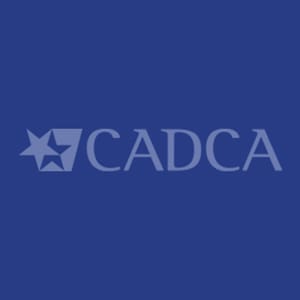Alexandria, VA – The Arkansas Opioid Recovery Partnership (ARORP) is proud to announce that seven of thirteen Coalition Partnership Empowerment (COPE) coalitions who attended CADCA’s new Opioid Coalition Academy have been awarded the prestigious Drug Free Communities (DFC) Grant from the Office of National Drug Control Program. This funding will provide each coalition with $125,000 annually for five years, amounting to a total of $625,000 per coalition and bringing a substantial $4,375,000 investment into Arkansas’s cities and counties. Moreover, coalitions will have the opportunity to apply for a second five-year term of funding, doubling the potential total to an impressive $8.75 million.
DFC-funded coalitions engage multiple sectors of the community to address local substance use problems. As demonstrated by independent evaluations, the DFC Support Program significantly reduces substance use amongst youth, the target population.
“This is a phenomenal achievement by ARORP, COPE, and CADCA, which shows the power of possibilities that we realize in partnership. These seven community-based coalitions just became self-sustainable with this Federal recognition. All involved in the training, education, and equipping of these seven coalitions should be extremely proud,” says CADCAs President and CEO, Major General (Retired) Barrye L. Price.
Coalitions that received DFC Grants:
- Prevention-Awareness-Youth-Support (PAYS) Coalition (Mountain Home, AR)
- Sebastian County Opioid Task Force (Fort Smith, AR)
- The Opioid Prescription Drug and Synthetics Coalition (O.P.P.S.), formerly Healing in the Hood (Blytheville, AR)
- Newton County Partners in Prevention Coalition (Jasper, AR)
- Greene County Mental Health and Substance Abuse Coalition (Paragould, AR)
- Amazing Angels Coalition (Lake Village, AR)
- Carroll County Hometown Health Coalition (Green Forrest, AR)
Through the COPE project, ARORP utilized city and county opioid settlement dollars to provide 13 coalitions $25,000 each to develop their coalition in preparation to apply for the DFC grant. With an initial investment of $536,607.00 from ARORP, this funding represents a remarkable return and a major step forward in combating substance abuse in Arkansas.
For more information about ARORP and the COPE coalitions, please visit ARORP.org or contact ARORP22@gmail.com.
ABOUT THE DFC PROGRAM:
Created in 1997, the Drug-Free Communities (DFC) Support Program funds community-based coalitions that engage multiple sectors of the community to prevent youth substance use. Recognizing that local problems need local solutions, DFC-funded coalitions engage multiple sectors of the community and employ a variety of environmental strategies to address local substance use problems. DFCs involve local communities in finding solutions and help youth at risk for substance use recognize that most of our nation’s youth choose not to use substances. As demonstrated by independent evaluations, the DFC Support Program significantly reduces substance use amongst youth, the target population.
ABOUT ARORP:
The Arkansas Opioid Recovery Partnership (ARORP), an initiative of the Arkansas Municipal League and the Association of Arkansas Counties, represents an unprecedented, united front between the representatives of local government to abate the loss of life caused by the opioid epidemic in Arkansas communities. The Partnership oversees the strategic disbursement of opioid settlement dollars at the city and county levels and works to reduce overdose deaths through prevention, treatment, enforcement and recovery. ARORP’s message is simple: be bold, stand together and commit to abating opioid misuse and addiction in Arkansas. To learn more and submit a request for funding, visit ARORP.org.
ABOUT CADCA:
CADCA is the premier prevention association equipping coalitions with tools, knowledge, and support to create positive change in their communities. CADCA’s vision is safer, healthier, and stronger communities everywhere. Through our work we have built a network of more than 7,000 coalitions across the United States and over 28 countries. At the core of CADCA’s creation is the belief in the effectiveness and efficiency of local coalitions as catalysts for drug-free communities globally, combating substance misuse through the implementation of comprehensive strategies for community change.


